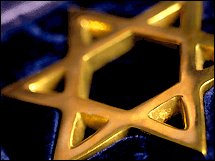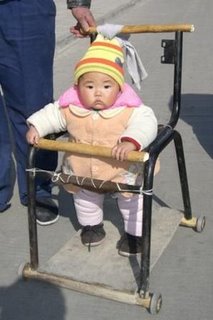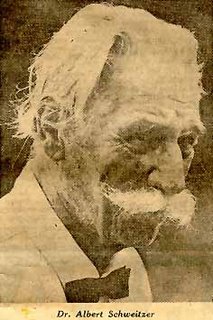Swan's Blog
This is cool, because everyone who thinks that he or she is cool is doing it.
Saturday, April 29, 2006
Wednesday, April 19, 2006
Sunday, April 16, 2006
Saturday, April 15, 2006
40 days before his Ascension
This is an excerpt from a sermon given by John Bruce pastor at Creekside Community Church--an externally focused church in San Leandro doing a great work and having a great witness in their community. Easter is a time to remember the kingdom and the work God has called us to do. Acts 1:3 explains why Jesus stuck around for 40 days before his ascension--to teach about the kingdom!
When we read the four accounts of the resurrection of Jesus in the Gospels, or we read what the other New Testament writers have to say about Christ’s resurrection, we’ll find that nobody ever says the resurrection of Christ is all about going to heaven when you die. In fact, there is very little about going to heaven when you die in the New Testament. Sure, Paul tells the Philippians believers that they’re citizens of heaven, but he doesn’t just mean that heaven is where they’re going to end up. Philippi was a Roman colony in Macedonia and a lot of the Philippians were Roman citizens. But that didn’t mean Rome expected them to return to Rome when they retired. Their job was to spread Roman culture in Macedonia. And when Paul tells the Philippians they are citizens of heaven, he doesn’t just mean they’ll go to heaven when they retire. He means their job is to spread heaven’s culture on earth. Which is the point each of the Gospel writers make in their accounts of Jesus’ resurrection. If Matthew, Mark, Luke, or John had wanted to say that “Jesus is risen; therefore you will be too!” they certainly had the opportunity. But they don’t. What they do say is, “Jesus is risen. So let’s get to work!” Because His followers now have access to a new life, to a new power and to a new mission. Christ has risen and God’s new world has begun. When Paul wrote an entire chapter about Christ’s resurrection, his conclusion wasn’t, “So let’s celebrate the fact that we’re going to heaven.” No, his conclusion was 1 Cor. 15:58 Therefore, my beloved brethren, be steadfast, immovable, always abounding in the work of the Lord, knowing that your toil is not in vain in the Lord. Christ has risen and God’s got a job for us to do - so let’s get to work. And what’s that work? To bring the life of heaven to earth.
Jesus’ resurrection is the beginning of God’s new project on earth; not to snatch people away from earth to heaven, but to colonize earth with the life of heaven. Isn’t that what Jesus prayed? “Your will be one on earth as it is in heaven.” The bodily resurrection of Jesus is more than proof that God can do miracles, more than proof that the Bible is true, more than proof of life after death. The bodily resurrection of Jesus is the beginning of a new way of life for us and ultimately, for the entire world. It is the beginning of a new age - a new creation - which will ultimately make all things new.
You see, Christians have made Easter less than it is - which is probably why we had to throw in the silly rabbit and eggs, just to keep things interesting. Easter is about more than me and the fact that I can have a personal relationship with the risen Christ - as much as that means to me. Easter is about more than a guarantee of life after death. Easter is the beginning of God’s new world. When Jesus defeated death and burst out of the tomb, the history of the universe changed course. That’s when the real New Age began. Easter is the victory of the Creator over evil, and of life over death. Easter shouts that God is victorious, that His kingdom shall come and His will shall be done on earth as it is in heaven. Easter is revolution is its most fundamental sense. The status quo is upset. The kingdom of this world has become the kingdom of God and of His Christ. And every child of God - every new creation - is now summoned to labor for that kingdom; to show what the kingdom of God is like by our character, our virtue and our actions.
Patch Adams
I'm not sure how many people have seen the movie Patch Adams. It is a movie about a medical student who bucks the medical system by spending time caring for his patients. The Professors don't like the way he goes about with the patients and puts himself down on their level. He is even criticized for being excessively happy. But he is also crude and can be very stubborn. I saw the movie recently and was drawn to consider the striking similarities between the doctors of the movie and today's Christians. As believers we understand and know what death means. We devote our time and money to save as many people as possible. Our goal is to save them from Hell and it is an extremely worthy goal. Sometime we neglect the secondary part of our job. We help the to be saved from spiritual death, but we don't take care of them in their physical life. We ignore the social systems and structures, the physical poverty and need, when Jesus' message was a message that the Kingdom was near. In the Kingdom no one is in need. Jesus met people's spiritual needs but many times began by meeting their physical needs. Here are some good Quotes from the movie:
Hunter Patch Adams: You treat a disease, you win, you lose. You treat a person I'll guarantee you'll win.
Hunter Patch Adams: Our job is improving the quality of life, not just delaying death.
Hunter Patch Adams: All of life is a coming home. Salesmen, secretaries, coal miners, beekeepers, sword swallowers, all of us. All the restless hearts of the world, all trying to find a way home. It's hard to describe what I felt like then. Picture yourself walking for days in the driving snow; you don't even know you're walking in circles. The heaviness of your legs in the drifts, your shouts disappearing into the wind. How small you can feel, and how far away home can be.
Hunter Patch Adams: Home. The dictionary defines it as both a place of origin and a goal or destination. And the storm? The storm was all in my mind. Or as the poet Dante put it: In the middle of the journey of my life, I found myself in a dark wood, for I had lost the right path. Eventually I would find the right path, but in the most unlikely place.
Hunter Patch Adams: We need to start treating the patient as well as the disease.
Arthur Mendelson: You're focusing on the problem. If you focus on the problem, you can't see the solution. Never focus on the problem!
Arthur Mendelson: See what no one else sees. See what everyone chooses not to see... out of fear, conformity or laziness. See the whole world anew each day!
Friday, April 14, 2006
Passover

This is an exerpt from http://jcsm.org/Education/Passover.htm. It talks about the celebration of Passover. It is a time to remember how God saved his people. They were saved from death by being covered from the blood of the lamb.
The Passover Seder
Taking place the first 2 nights of the 8 day holiday, the Seder is the most important event in the Passover celebration. Usually gathering the whole family and friends together, the Seder is steeped in long held traditions and customs.
Leading up to the first night of Passover, the home is cleaned and cleared of all yeast foods, called hametz. All hametz is either eaten before Passover begins or "sold" to non-Jewish neighbors and friends. The rules surrounding Passover are strict and many, with only special foods, utensils, and dishware allowed. Kitchen utensils and dishware normally used in the home are not be used during Passover. Special dishes and utensils for the Passover holiday are taken out of storage, cleaned and used.
Only foods that are "Kosher for Passover" are allowed. No leavened (containing yeast) foods or grains are eaten. In their place matzoh and foods containing matzoh are eaten. This is to commemorate the Israelites who fled quickly into the desert with no time for their breads to rise and were forced to bake the dough into hard crackers in the desert sun. All foods prohibited during Passover must be disposed of the morning of the first night of Passover.
With its Passover dishware and silverware, the Seder table is different than the regular dinner table. The centerpiece of which is the Seder plate, a special plate containing the 5 foods that remind us of the struggle of the Israelites in their quest and journey to freedom.
Three pieces of matzoh are placed in a Matzoh Cover (a cloth sleeve or envelope) and placed in the center of the Seder table. Before the meal begins the middle matzoh is removed and broken in half.
One half is returned to the Matzoh Cover, the other - the Afikomen - is hidden, to be hunted by the children at the end of the Seder meal. The child who finds the Afikomen wins a special prize. Some homes break the Afikomen in to many pieces assuring that each child present can find a piece and receive a prize.
The Seder plate contains foods that have special meaning for this holiday. They include:
1. Haroseth
2. Parsley (dipped in salt water)
3. Roasted egg
4. Shank Bone
5. Bitter herbs
Haroseth is a mixture of chopped walnuts, wine, cinnamon and apples that represents the mortar the Jewish slaves used to assemble the Pharaoh's bricks. Parsley, symbolizing Springtime, is dipped in salt water to remind us of for the tears of the Jewish slaves.
Another Symbol of Spring
Shank is the symbolic of the sacrificial lamb offering, the bone can come from whatever the family is eating, such as the leg bone of a roasted turkey. Bitterness is reflected by the freshly grated horseradish. This reflects the bitter affliction of slavery.
During the Seder 4 glasses of wine are poured to represent the 4 stages of the exodus:
1. Freedom
2. Deliverance
3. Redemption
4. Release
A fifth cup of wine is poured and placed on the Seder table. This is the Cup of Elijah, an offering for the Prophet Elijah. During the Seder the door to the home is opened to invite the prophet Elijah inside.
After the meal is eaten, the children search for the Afikomen. The Seder is finished when the children have found the Afikomen and everyone has eaten a piece.
Why is this night different from all other nights?
The Four Questions
It is said that the Seder is celebrated especially for the children. It is important for Jewish children to be and feel involved in the celebration of Passover. Much of the ceremony is based on the commandment in the Bible that says, "And thou shalt tell thy son." Exodus 10:2 reads, "And that thou mayest tell in the ears of thy son, and of thy son's son, what things I have wrought in Egypt, and my signs which I have done among them; that ye may know how that I am the LORD" (KJV).
At the Seder the Haggadah, the Book of Exodus, is read and the history celebrated with its stories, songs and prayers.
Why? Why? Why? Why is this night different? Why do they eat such unusual foods as Matzoh, the unleavened bread, and Maror, the bitter herbs? Why do they dip green herbs in salt water? Why do they open doors? Why do they hide and then eat the Afikomen?
At the Seder it is the youngest child at the table that answers the 4 questions asked at Passover.
On all other nights they eat all kinds of breads and crackers. Why do they eat only matzoh on Pesach? Matzoh reminds them that when the Jews left the slavery of Egypt they had no time to bake their bread. They took the raw dough on their journey and baked it in the hot desert sun into hard crackers called matzoh.
On all other nights they eat many kinds of vegetables and herbs. Why do they eat bitter herbs, maror, at our Seder? Maror reminds them of the bitter and cruel way the Pharaoh treated the Jewish people when they were slaves in Egypt.
On all other nights they don't usually dip one food into another. At our Seder the Jews dip the parsley in salt water and the bitter herbs in Charoset. Why do they dip their foods twice tonight? The Jews dip bitter herbs into Charoset to remind them how hard the Jewish slaves worked in Egypt. The chopped apples and nuts look like the clay used to make the bricks used in building the Pharaoh's buildings.
They dip parsley into salt water. The parsley reminds them that spring is here and new life will grow. The salt water reminds them of the tears of the Jewish slaves.
On all other nights they eat sitting up straight. Why do they lean on a pillow tonight? They Jews lean on a pillow to be comfortable and to remind us that once we were slaves, but now we are free.
The Haggadah itself stresses the importance of the Seder as "a spectacle meant to excite the interest and the curiosity of the children." Everything in the Seder is meant to make the children curious and to ask questions.




